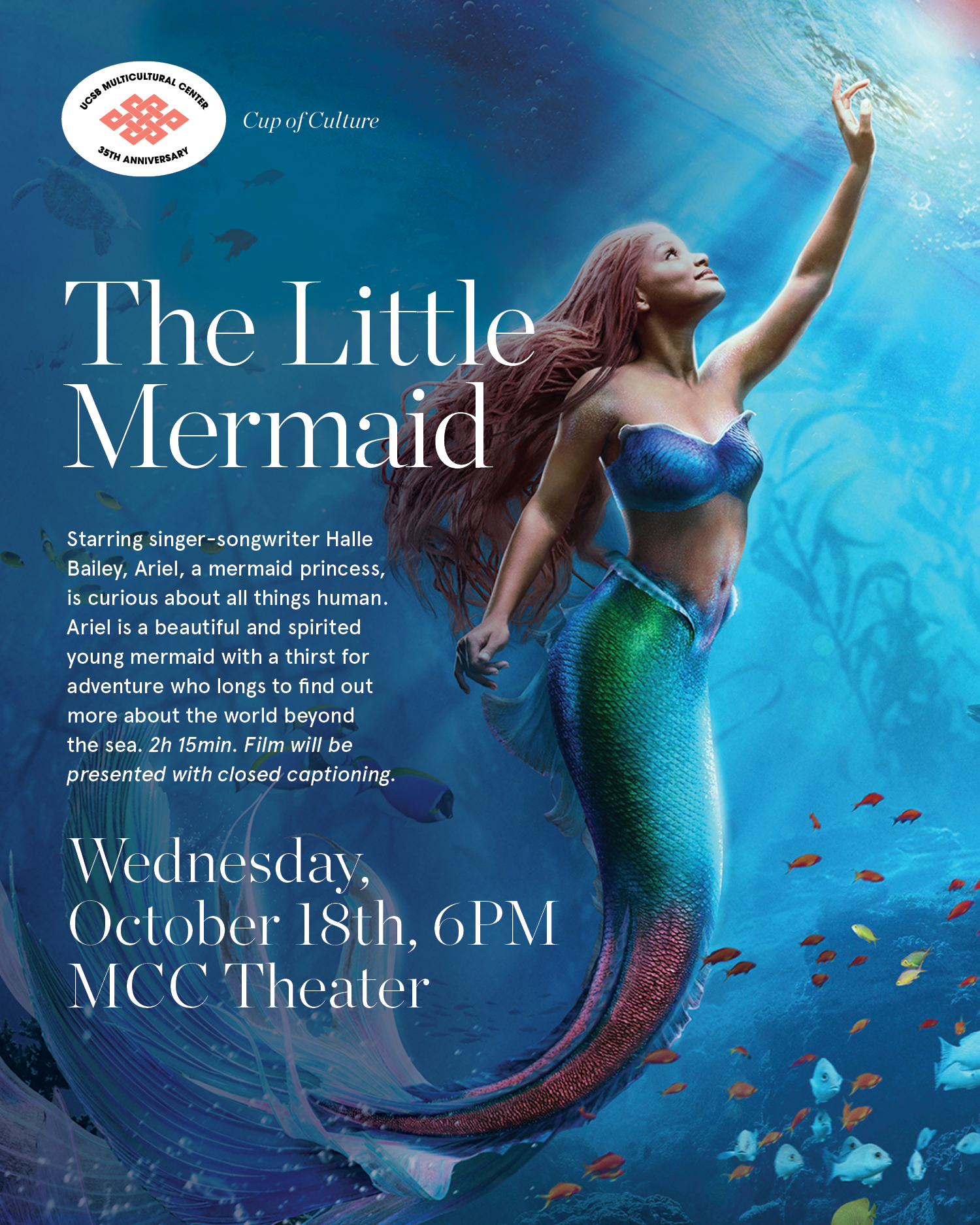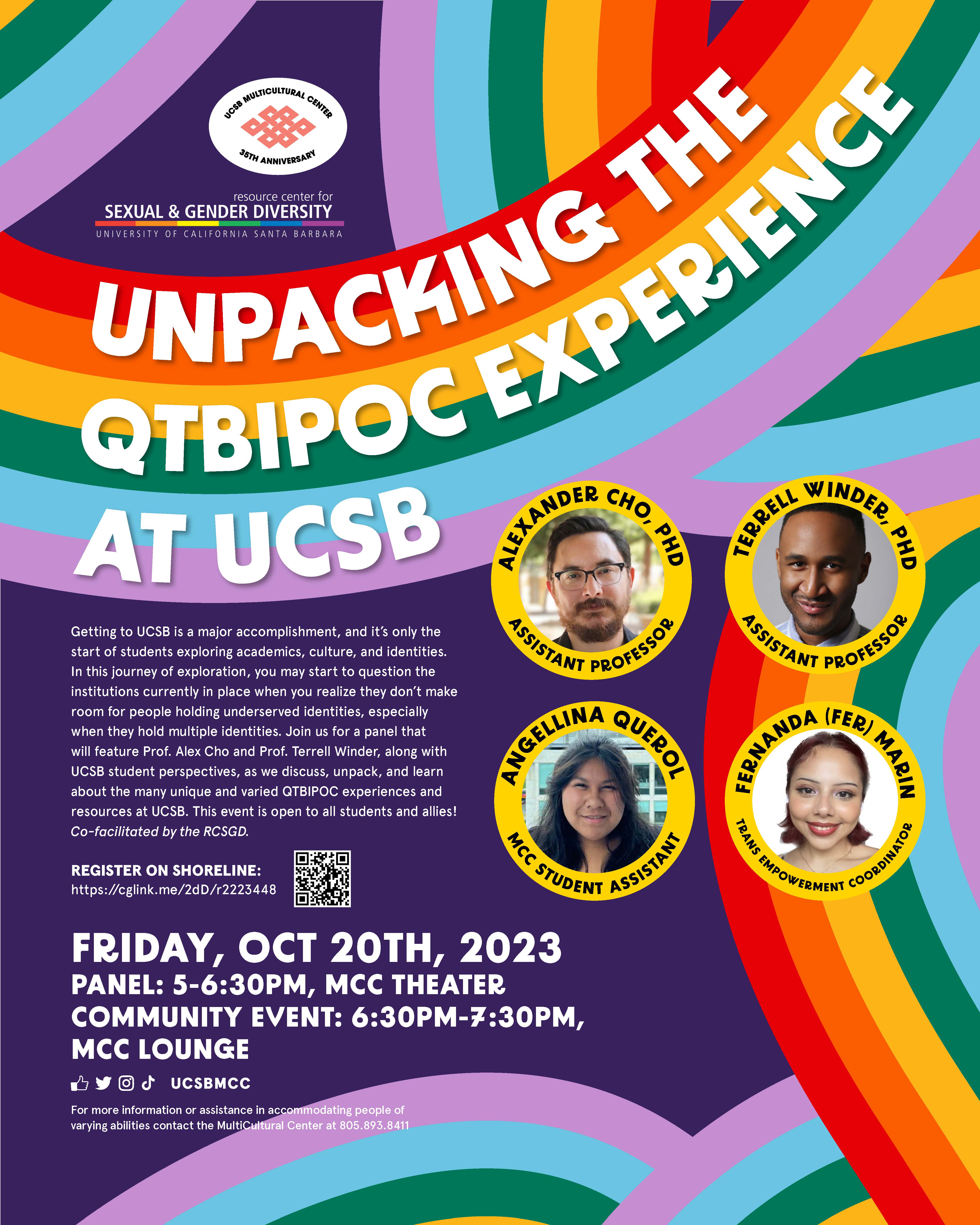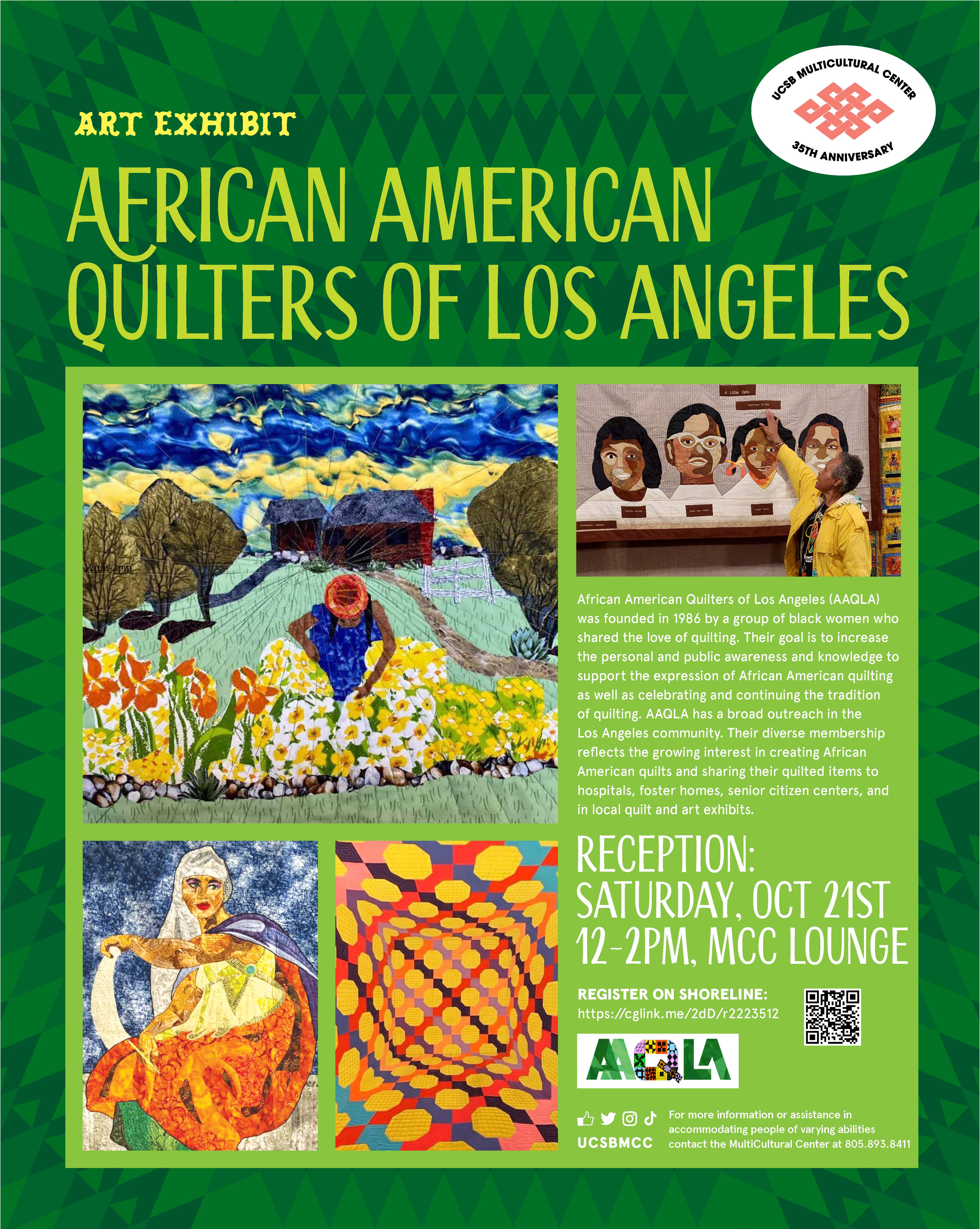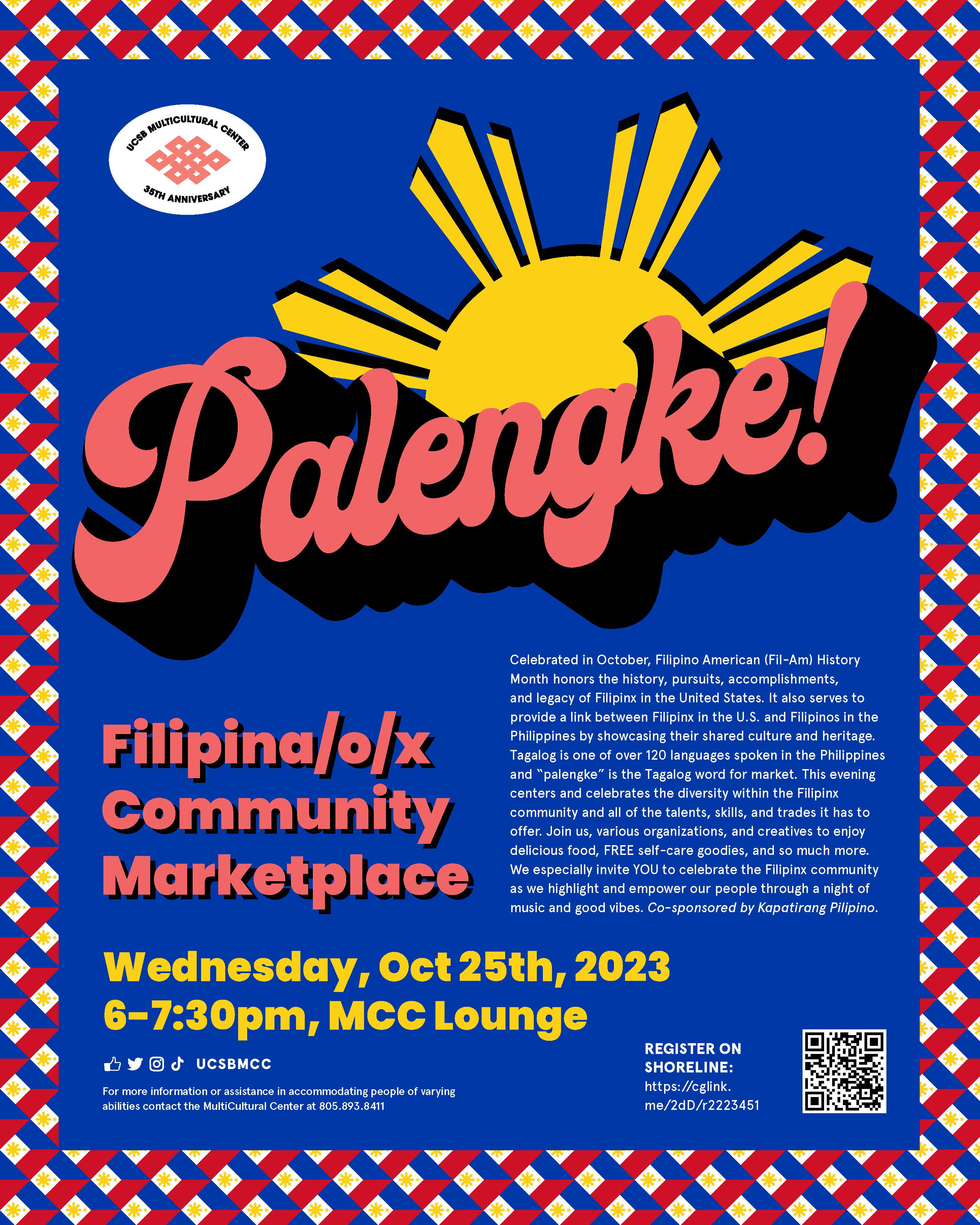All Events

Cup of Culture
Little Mermaid
MCC Theater
Starring singer-songwriter Halle Bailey, Ariel, a mermaid princess, is curious about all things human. The youngest of King Triton's daughters, Ariel is a beautiful and spirited young mermaid with a thirst for adventure. Ariel longs to find out more about the world beyond the sea as she dreams of visiting the surface. 2 hours, 15 minutes.
Film will be presented with closed captioning.

Conscious Conversations Series
Unpacking the QTBIPOC Experience at UCSB
Alexander Cho, Terrell Winder, Angellina Querol and Fernanda Marin
MCC Theater (panel) and MCC Lounge (community event)
Getting to UCSB is a major accomplishment, and it’s only the start of students exploring academics, culture, and identities. In this journey of exploration, you may start to question the institutions currently in place when you realize they don’t make room for people holding underserved identities, especially when they hold multiple identities. Join us for a panel that will feature Prof. Alex Cho of the Asian American Studies department and Prof. Terrell Winder of the Sociology department along with UCSB student perspectives as we discuss, unpack, and learn about the many unique and varied QTBIPOC experiences and resources at UCSB. In this discussion, we hope to create a space where we can listen, learn, and possibly share our own stories of coming into the UCSB community as LGBTQ+ students, faculty, and staff of color. This event is open to all students and allies!
Panel: 5:00-6:30pm, MCC Theater
Community event: 6:30pm-7:30pm, MCC Lounge
Co- Sponsors: RCSGD
Speaker Bios:
Alexander Cho, PhD - Assistant Professor
Alexander Cho (he/they) is Assistant Professor in the Department of Asian American Studies at the
University of California, Santa Barbara, where he teaches courses on Asian American media studies as well as gender and sexuality studies. He researches how people use digital media with a particular emphasis on issues of race, gender, and sexuality, combining approaches from critical media studies and human-centered design. He is co-editor of a tumblr book: platform and cultures (University of Michigan Press) and is currently working on a monograph entitled Affect’s Engine: Race and Queerness on Peak Tumblr.
Terrell Winder, PhD - Assistant Professor
Terrell J. A. Winder is Assistant Professor of Sociology at the University of California, Santa Barbara. His research interests include race and ethnicity, sexuality and sexual health, qualitative and quantitative research methods, and education. He is a 2023 awardee of the Mellon Emerging Faculty Leaders Award (Institute for Citizens and Scholars) and the recipient of the 2023 Jacquelyne Johnson Jackson Early Career Scholar Award from the Association of Black Sociologists. His current book project, Unspoiled: How Black Gay Youth Transform Racial and Sexual Stigma, is a multi-method examination of anti-gay stigma response among young Black gay men in Los Angeles.
Angellina Querol - MCC Student
Fernanda (Fer) Marin - they/elle, Trans Empowerment Coordinator
¡Hola! My name is Fernanda but you can call me Fer! It is my 4th year here at this beautiful UCSB campus and I am currently working on getting my degree in Sociology with a minor in Spanish. My experience here has definitely been shaped by being a first generation, Latine, nonbinary, and lesbian student so if you identify with any of those identities feel free to contact me! I am always here to support students in whatever way I can with all the resources I have. If you ever have any ideas/suggestions/concerns about something on campus, I am here to listen and make sure your voice is heard. I also love to talk about cooking, anime, reality tv, competition shows, music, art, and anything & everything queer! "
(facilitator) Micky Brown - MCC Program Coordinator: they/them/he/him

Art Exhibition Opening Reception
Art Reception: African American Quilters of Los Angeles
MCC Lounge
African American Quilters of Los Angeles (AAQLA) was founded in 1986 by a group of Bblack women who shared the love of quilting, whose goal is to increase the personal and public awareness and knowledge to support the expression of African American quilting, as well as celebrating and continuing the tradition of quilting. AAQLA has a broad outreach in the Los Angeles community with a diverse membership that reflects the growing interest in creating African American quilts and sharing quilted items to hospitals, foster homes, senior citizen centers, and in local quilt and art exhibits. Learn more at EASYSITE.COM/AAQLA

Palengke! Filipina/o/x Community Marketplace
MCC Lounge
Celebrated in October, Filipino American (Fil-Am) History Month honors the history, pursuits, accomplishments, and legacy of Filipinx in the United States. It also serves to provide a link between Filipinx in the U.S. and Filipinos in the Philippines by showcasing their shared culture and heritage. Tagalog is one of over 120 languages spoken in the Philippines and “palengke” is the Tagalog word for market. This evening centers and celebrates the diversity within the Filipinx community and all of the talents, skills, and trades it has to offer. Join us, various organizations, and creatives to enjoy delicious food, FREE self-care goodies, and so much more. We especially invite YOU to celebrate the Filipinx community as we highlight and empower our people through a night of music and good vibes.
Co- Sponsors: Kapatirang Pilipino
